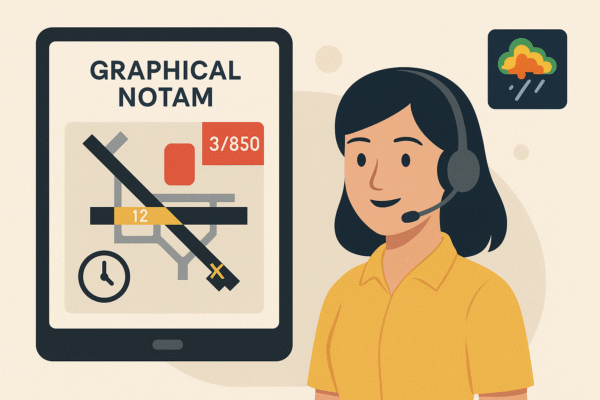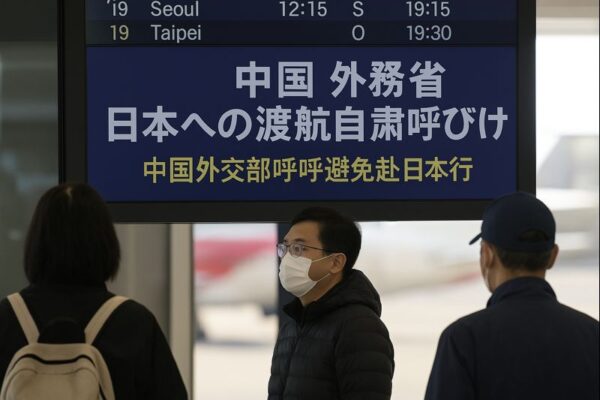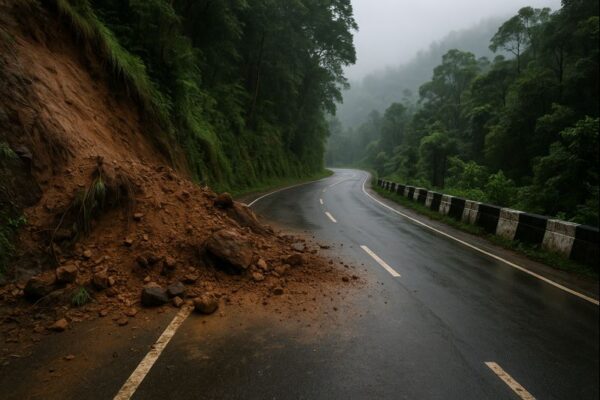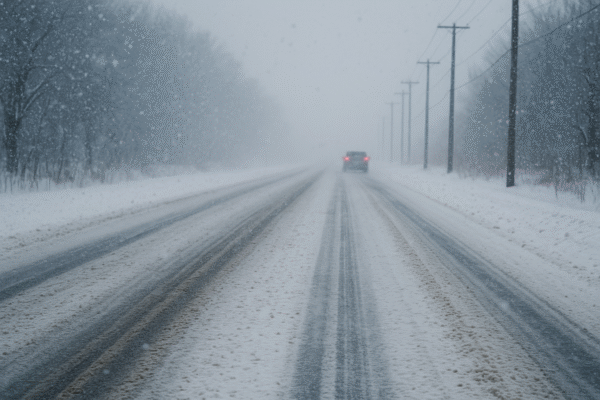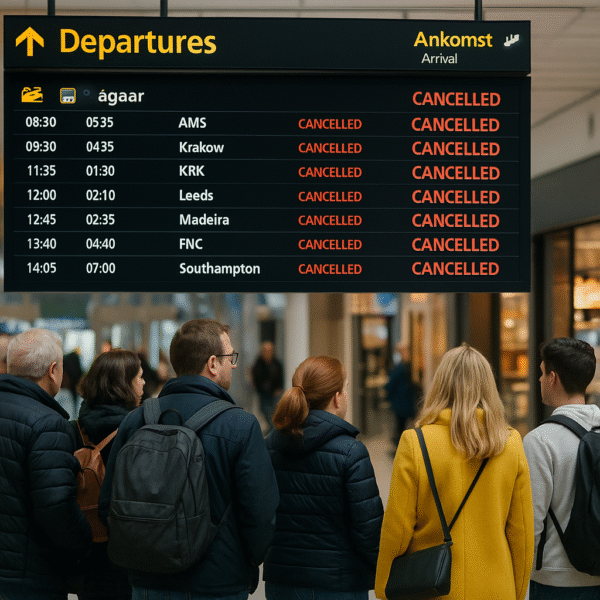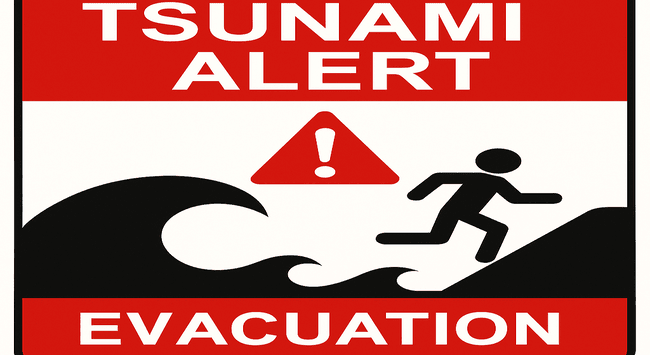
In the early hours of Wednesday morning, a powerful 6.0 magnitude earthquake struck off the southern coast of Greece, sparking tsunami warnings and triggering swift evacuation efforts for both residents and tourists on the island of Crete. The seismic event sent tremors across multiple countries and ignited a wave of concern across the eastern Mediterranean.
The earthquake, initially registered at 5.9 magnitude before being upgraded to 6.0, occurred at approximately 1:51 AM local time, with its epicenter located 48 kilometers southeast of Kasos, a small island near Crete. The tremors were reportedly felt in several neighboring regions, including Israel, Egypt, Syria, and Turkey, indicating the quake’s far-reaching impact.
Evacuation Orders Issued Across Coastal Zones
Following the earthquake, Greece’s Ministry for Climate Crisis and Civil Protection issued an immediate tsunami warning, advising both locals and international visitors to move inland or to higher ground. Emergency alerts were broadcast across social media platforms and mobile networks.
Although the strongest alerts focused on Crete, tsunami warnings also extended to coastal zones along a wide stretch from Double Island Point, Queensland, to Grafton, New South Wales. Popular destinations such as Brisbane, Gold Coast, Sunshine Coast, Byron Bay, and Ballina were covered, although Grafton itself was not included in the warning.
Tourists Scramble to Safety
Tourists visiting Greece during the shoulder season found themselves at the heart of the emergency. Many, including numerous British, German, and Swedish holidaymakers, described moments of confusion and fear as sirens sounded and emergency alerts appeared on mobile phones.
Among them, Barry and Ashleigh, a couple from the UK vacationing near Stalis, Crete, recounted the experience of being woken by hotel staff and directed to evacuate. “There were crowds of us—people speaking different languages—all walking up the hill. Everyone was scared, but the hotel team handled it calmly,” Barry said.
On Rhodes, another island shaken by the quake, hotel employee Anastasia described a night of unrest. “British tourists especially were rattled. Many didn’t go back to sleep. Some stayed up watching the sea, just in case. It was very unsettling,” she noted.
Experts Clarify: No Link to Santorini or Turkey Quakes
While many feared that the tremor could be part of a broader seismic pattern, geologists confirmed that the event was unrelated to recent earthquakes in Santorini or Turkey. According to Professor Efthimis Lekkas, a prominent tectonics expert at the National Kapodistrian University of Athens, the earthquake occurred within the Hellenic Arc, a distinct seismic zone from Santorini’s volcanic system and Turkey’s North Anatolian Fault.
“This earthquake is part of the complex tectonic interactions between the African and Eurasian plates along the Hellenic subduction zone,” said Professor Lekkas. “There’s no geological connection with the volcanic arc around Santorini or the Anatolian movements in Turkey.”
Earlier Seismic Activity in the Region Raises Concerns
This is not the first time in 2025 that seismic activity has unsettled Greek tourism. Earlier this year, a swarm of quakes—ranging from magnitude 3 to 5—hit Santorini, prompting mass evacuations and precautionary deployment of military vessels by the government. Though these incidents caused no significant damage, they highlighted the necessity for robust emergency protocols in a region that experiences frequent seismic shifts.
Travel Advisory: Is It Safe to Visit Greece Now?
Despite the recent incident, the UK Foreign, Commonwealth & Development Office (FCDO) has not issued a formal travel warning against visiting Greece. Tourists are encouraged to continue with their travel plans but are urged to remain alert and follow local guidance during emergencies.
The FCDO recommends all travelers register with the Greek Emergency Communication Service, which provides real-time updates on natural hazards. Travelers are also advised to be familiar with evacuation routes and emergency contact numbers, particularly the European emergency line 112.
The official advisory recognizes that Greece is susceptible to natural disasters, including earthquakes, wildfires, flash floods, and heatwaves, especially during summer months. However, decisions to cancel travel plans without a formal warning may not qualify for compensation under the Package Travel Regulations.
Greece’s Proactive Response and Seismic Preparedness
Greek authorities, including the Ministry for Climate Crisis and Civil Protection, were swift in their response. Alerts were pushed out through national broadcast systems and social platforms, and evacuation instructions were communicated clearly to both locals and international tourists.
“Preparedness and clear communication saved lives last night,” said Minister Vassilis Kikilias, adding that drills and infrastructure investments have improved Greece’s emergency readiness in recent years.
Greece’s role as a global tourist destination means that maintaining robust crisis management systems is essential—not just for citizen safety, but also for the continued confidence of the international travel community.
Understanding Earthquake Risk in Greece
Greece is one of Europe’s most earthquake-prone nations, positioned along the collision boundary of the African and Eurasian tectonic plates. Monitoring agencies such as the European-Mediterranean Seismological Centre (EMSC) and the U.S. Geological Survey (USGS) track seismic activity in the region, issuing rapid updates to help both authorities and the public make informed decisions.
Tourists visiting Greece, especially islands like Crete, Rhodes, or Santorini, are encouraged to stay informed about emergency procedures, check local advisories regularly, and always respect evacuation warnings—even when no visible threat is present.
Conclusion: Caution Amid Beauty
The 6.0 magnitude quake that rocked Crete serves as a powerful reminder of the natural risks that accompany Greece’s breathtaking beauty. While the country remains open and safe for tourism, preparedness, awareness, and cooperation with local authorities are vital.
As the aftershocks settle and normalcy returns to the Aegean shores, Greece continues to balance its rich cultural and natural offerings with a growing emphasis on resilience and readiness in the face of nature’s unpredictability.
Stay alert, keep reading Global Travel Wire.
Disclaimer:
This image is AI-generated and created for illustrative purposes only. It may not accurately represent the actual events, individuals, or locations described in the news article.



